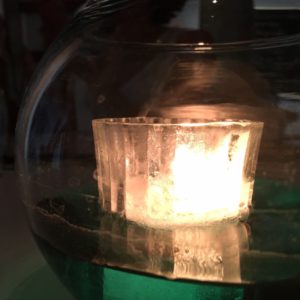 Every week, local news somewhere features a Reiki business, and Reiki practice has been mentioned in popular tv shows in the US and the UK, but rarely is the most important Reiki fact mentioned.
Every week, local news somewhere features a Reiki business, and Reiki practice has been mentioned in popular tv shows in the US and the UK, but rarely is the most important Reiki fact mentioned.
And what’s that? I’ll give you a hint. When you see Reiki practice in the media, does it look like your practice?
Is it ever different? Really, really different?
Does it matter?
Growing public awareness of Reiki
Our practice is so familiar to us, it’s hard to imagine how confusing it can be for someone just becoming aware of Reiki practice.
As people start noticing the word “Reiki” here and there, they assume all those Reikis are the same, that Reiki is an (at least somewhat) standardized practice.
That’s a reasonable assumption, but we Reiki practitioners know that assumption is wrong, don’t we?
What is the most important Reiki fact?
We have widely differing approaches to Reiki practice. That’s true whether we are home practitioners or professionals.
Common Reiki practice variations include:
- some Reiki practitioners touch, others don’t;
- some talk, others are quiet;
- some offer Reiki-only sessions, others mix it up;
- some have an elaborate intake process, others are informal;
- some include psychic readings, others support the client’s own experience.
It’s no wonder the public gets confused. And when people are confused, they are less likely to have a positive experience.
There’s one thing we could share first that would make it less confusing for people who are just discovering Reiki practice.
Showcasing Reiki diversity, and your practice
My vote for Most Important Reiki Fact goes to Reiki diversity.
Putting Reiki diversity front and center, helping the public realize Reiki is not a standardized practice, alerts new people to ask questions.
You help people sort out what they want when you first state there is wide diversity among Reiki practitioners, and then talk about your approach to Reiki practice.
That gives them some context for Reiki practice, and shows them you care that they have a good experience, whether or not they choose to follow up with you.
Educating the public about Reiki
People need help knowing what questions to ask a prospective Reiki practitioner or teacher in order to find one who meets their expectations. As Steve Jobs famously said, “It’s not the customer’s job to know what he wants.”
It’s our job as lovers of Reiki practice to help people find their Reiki connection, whether or not they ultimately choose us.
When asked how to choose among Reiki teachers or practitioners, I share these two articles:
Reiki Classes: What’s Right for You?
Recipe for Reiki Credibility
Going beyond right or wrong to serving
This is not about right-or-wrong Reiki practice; it’s about serving the public and the practice by helping people make a Reiki connection that offers them a positive, meaningful experience.
“Different strokes for different folks” works best when people make informed choices.
What do you want people to know about your Reiki practice? Please share it with us in a comment below. Then try adding that, and a mention of diversity, to your next Reiki conversation, and see the difference that makes.
____________
These programs help Reiki practitioners of all styles go deeper and get clearer in their own practice. The clearer we are, the better we can present Reiki practice to others. —
WRITE REIKI
Heart of Practice Reiki Retreat
Reiki & Medicine Intensive

For me the beauty of Reiki lies in the simplicity of it. …Sharing Reiki is a gift of compassion and love for all. I had a client call me once wanting a Reiki session cause he had one in another state with a lady who was psychic and gave him all sorts of information. So he was hoping I could do Reiki and psychic readings. I had to explain I was not psychic but could help him with Reiki and if I received any info during the session I would let him know. He did not book with me right away but did come to a session and enjoyed it very much saying I had very healing hands ??. So I think this is a great article because there is such a wide variety of things people do with Reiki that it confuses me haha, so I guess that’s why I prefer traditional simple hands on Reiki.
Thank you for your comment, Nikki! It is a wonderful illustration of the need for us all to be aware of the great diversity in our practice. When I learned traditional Reiki practice in 1986, and it did not include receiving and sharing “any info during the session.”
So here we have two Reiki practitioners who describe our practice as “traditional simple hands on Reiki,” and we mean two very different things.
Enlightening, to say the least. For me, Reiki is still more of an obscure thing but the more I dig and the clearer it becomes, this helps a lot.
Thanks
I want clients to know that when they come for a treatment, they will feel completely relaxed, which brings healing for them wherever needed.
So glad u are doing so much with and for reiki and helping others.
I have a couple of questions u might be able to help me with.
Can u use reiki at any point for cancer patients (sort of how to).
Have u ever seen reiki completely heal or cure any conditions?
Often my client will fall asleep during a treatment. Should I try and keep them awake or allow the sleep? Thank you for caring.
Debbie
Debbie, Reiki practice is very useful for people addressing cancer and is offered at many cancer treatment centers, including Memorial Sloan Kettering, Dana Farber/Harvard, and M.D. Anderson. I wrote a peer-reviewed medical paper on Reiki for cancer support that you can download from the Medical Papers page of this site.
Reiki practice does not address disease directly but rather balances the individual so that the system is less disease prone and better able to address pathogens. As Hawayo Takata often said, Remove the cause and you will remove the disease. Reiki practice has the potential to address even the subtlest layers of imbalance.
People are often drawn deeply within as part of their self-healing response to Reiki practice. That state is profoundly healing and you do not want to disturb the person if you can avoid it.
When I received my Reiki Master training and attunement, I made a commitment to honor the integrity of the practice. I find it disturbing when Reiki practitioners incorporate other healing modalities without disclosure and just call it Reiki. I have nothing against other healing methods and agree that everyone needs to find what suits them best, but everyone involved is best served by knowing what methods, traditions, etc. are being offered.
It helps the reiki practitioners and others to think differently.
Thank you for your integrity Pamela.
With heartfelt gratitude
Sarah
Thank you, Pamela, for this article. I appreciate especially this quote – and just shared it (and the article) on my Practitioner FB group page.
“It’s our job as lovers of Reiki practice to help people find their Reiki connection, whether or not they ultimately choose us.”
This speaks to my heart – we are a community of practitioners, uniquely gifted and diverse. I am grateful for that truth.
In our society of today Reiki is an essential part of life. One must Make time for Reiki each day. Many prefer to start the day, while others find it best at the end of one’s challenging day more beneficial. Determine that which works best for you, however make certain to include Reiki as a routine for satisfied living.